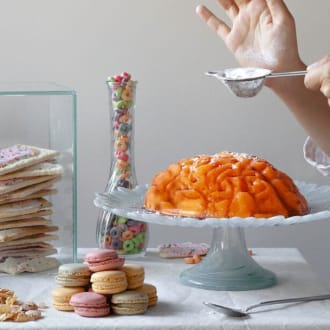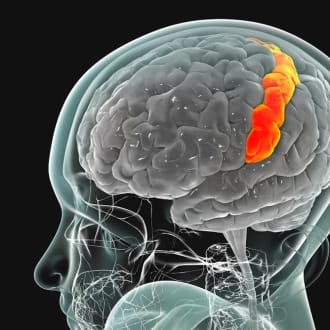The Best of The Conversation - Australia + New Zealand
20+ most popular The Conversation - Australia + New Zealand articles, as voted by our community.
New this Week
These are fresh off the press.
The unfinished business of John F. Kennedy’s vision for world peace
With wealth, charm and tactful leadership, John F. Kennedy set the standard for working toward the common good and decency in public discourse
Trending
These are currently making the rounds on Refind.
What is a GPU? An expert explains the chips powering the AI boom, and why they’re worth trillions
Originally designed to speed up computer graphics, GPUs have become a hot commodity as AI workhorses.
What is Sora? A new generative AI tool could transform video production and amplify disinformation risks
OpenAI’s Sora model is a leap forward for video-generation technology. How does it work, and what will it mean?
We’ve been here before: AI promised humanlike machines
Enthusiasm for the capabilities of artificial intelligence – and claims for the approach of humanlike prowess –has followed a boom-and-bust cycle since the middle of the 20th century.
Should you be checking your kid’s phone? How to know when your child is ready for ‘phone privacy’
Is it reasonable to occasionally inspect a 13- or 14-year-old’s device, or does this undermine a new sense of privacy at this stage?
Could a telescope ever see the beginning of time? An astronomer explains
Now out in space for more than two years, the James Webb Space Telescope is a stunningly sophisticated instrument.
The Conversation - Australia + New Zealand on ADHD
Strategies and life hacks to help anyone with ADHD and those who struggle without a diagnosis
Although medication and therapy can be effective treatments for ADHD, they’re not the only way to manage the disorder or its symptoms. Creating a daily routine is critical too.
ADHD looks different in adults. Here are 4 signs to watch for
By adulthood, ADHD symptoms may be more internalised but they can also cause grown up problems.
The Conversation - Australia + New Zealand on Artificial Intelligence
Data poisoning: how artists are sabotaging AI to take revenge on image generators
As AI developers indiscriminately suck up online content to train their models, artists are seeking ways to fight back.
ChatGPT can’t think – consciousness is something entirely different to today’s AI
Of the risks posed by AI, overtaking human intelligence isn’t an immediate concern.
«a way of determining whether a computer thinks. This is now called “the Turing test”. Turing imagined a human being engaged in conversation with two interlocutors hidden from view: one anothe»
The Conversation - Australia + New Zealand on Climate Crisis
Climate scientists: concept of net zero is a dangerous trap
Prominent academics, including a former IPCC chair, round on governments worldwide for using the concept of net zero emissions to 'greenwash' their lack of commitment to solving global warming.
«The only way to keep humanity safe is the immediate and sustained radical cuts to greenhouse gas emissions in a socially just way.»
New food technologies could release 80% of the world’s farmland back to nature
Cellular and microbial agriculture can make the same amount of food on a fraction of the land.
The Conversation - Australia + New Zealand on Diet
What’s this ‘longevity’ diet, and will it really make you live longer?
A new diet by an American biochemist claims to help you live longer. It’s not too dissimilar to the Australian guide to healthy eating, which if followed, could also prolong your life.
Diet can influence mood, behavior and more. A neuroscientist explains
Diets high in fat, sugar and processed foods are associated with higher calorie intake, poorer memory and lower cognitive function.
The Conversation - Australia + New Zealand on Electric Vehicles
If all the vehicles in the world were to convert to electric, would it be quieter?
Noise pollution is a serious problem, and cars make a lot of it. But roads are also a factor.
How climate-friendly is an electric car? It all comes down to where you live
Even if all passenger vehicles sold today were electric, it would take more than ten years for the Australian road fleet to be fully electric.
The Conversation - Australia + New Zealand on Jesus
The long history of how Jesus came to resemble a white European
Recent protests on racial justice have also questioned the portrayal of Jesus as a white man. An art historian explains how this image appeared and came to be marketed worldwide.
What did Jesus wear?
We may imagine Jesus in long robes with baggy sleeves, but this is far from how he would have dressed.
The Conversation - Australia + New Zealand on Medicine
Unregulated ‘innovation’: India’s medicine problem
India’s drug regulation is loose and results in dangerous medicines being sold at home and abroad.
Cancer evolution is mathematical – how random processes and epigenetics can explain why tumor cells shape-shift, metastasize and…
An epigenetic model of cancer that incorporates the concept of stochasticity could also explain why cancer risk increases with age and how biological development can be reversible.
The Conversation - Australia + New Zealand on Nature
Did life evolve more than once? Researchers are closing in on an answer
Current scientific consensus is that life emerged from non-living molecules in a process called abiogenesis. But if life emerged once, why not more times?
Dreaming may have evolved as a strategy for co-operative survival
Dreaming differs across cultures, and these differences may hold the clue to how and why dreaming evolved for humans and other species.
The Conversation - Australia + New Zealand on Quantum Computing
Quantum computers in 2023: how they work, what they do, and where they’re heading
After decades of hype, quantum computers are on the verge of becoming useful. Here’s a refresher on why they’re such a big deal
Quantum mechanics: how the future might influence the past
If we accepted that the future could influence the past, we could get rid of many counter-intuitive aspects of quantum mechanics.
The Conversation - Australia + New Zealand on Space
The length of Earth’s days has been mysteriously increasing, and scientists don’t know why
The length of a day has critical impacts on our technologies, navigation, and more.
How do you build a mirror for one of the world’s biggest telescopes?
The laws of physics dictate that to pick out ever fainter objects from space and see them more sharply, we’re going to need a bigger telescope. And that means we need massive mirrors.
Popular
These are some all-time favorites with Refind users.
Depression is probably not caused by a chemical imbalance in the brain
A new shows there’s no clear evidence that depression is caused by abnormally low levels of serotonin in the brain.
«drug trials show that antidepressants are barely distinguishable from a placebo (dummy pill) when it comes to treating depression.»
How to break unhealthy habits: Stop obsessing over willpower and focus on routines
Understanding and changing the environment in which habits form is a critical step when it comes to breaking unwanted behaviors and forming healthy ones.
«Another path to habit change involves friction: in other words, making it difficult to act on undesirable habits and easy to act on desirable ones.»
How mindfulness and dance can stimulate a part of the brain that can improve mental health
The brain’s somatosensory cortex may help enrich our emotional experiences and improve our mental health. Mindfulness and dance movement therapy may be effective ways to activate it.
«Those factors can enhance overall self-awareness, which contributes to improvement of mental health through potential reorganization of the somatosensory cortex.»
Cognitive biases and brain biology help explain why facts don’t change minds
Here are some reasons for the natural human tendency to avoid or reject new information that runs counter to what you already know – and some tips on how to do better.
«confirmation bias. It’s the natural tendency to seek out information or interpret things in a way that supports your existing beliefs.»
Why do mass shooters kill? It’s about more than having a grievance
Is there ever a satisfactory answer to questions about what motivated a mass shooter? There is, but it’s not what you think.
«at the hands of some real or imagined culprits»
What is Refind?
Every day Refind picks the most relevant links from around the web for you. is one of more than 10k sources we monitor.
How does Refind curate?
It’s a mix of human and algorithmic curation, following a number of steps:
- We monitor 10k+ sources and 1k+ thought leaders on hundreds of topics—publications, blogs, news sites, newsletters, Substack, Medium, Twitter, etc.
- In addition, our users save links from around the web using our Save buttons and our extensions.
- Our algorithm processes 100k+ new links every day and uses external signals to find the most relevant ones, focusing on timeless pieces.
- Our community of active users gets the most relevant links every day, tailored to their interests. They provide feedback via implicit and explicit signals: open, read, listen, share, mark as read, read later, «More/less like this», etc.
- Our algorithm uses these internal signals to refine the selection.
- In addition, we have expert curators who manually curate niche topics.
The result: lists of the best and most useful articles on hundreds of topics.
How does Refind detect «timeless» pieces?
We focus on pieces with long shelf-lives—not news. We determine «timelessness» via a number of metrics, for example, the consumption pattern of links over time.
How many sources does Refind monitor?
We monitor 10k+ content sources on hundreds of topics—publications, blogs, news sites, newsletters, Substack, Medium, Twitter, etc.
Can I submit a link?
Indirectly, by using Refind and saving links from outside (e.g., via our extensions).
How can I report a problem?
When you’re logged-in, you can flag any link via the «More» (...) menu. You can also report problems via email to hello@refind.com
Who uses Refind?
450k+ smart people start their day with Refind. To learn something new. To get inspired. To move forward. Our apps have a 4.9/5 rating.
Is Refind free?
Yes, it’s free!
How can I sign up?
Head over to our homepage and sign up by email or with your Twitter or Google account.






























